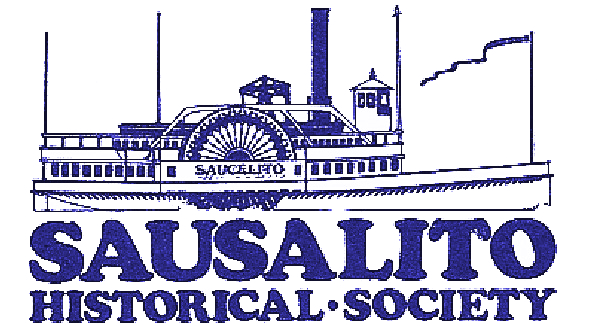By Arnie Gross
The following is excerpted from a 1970s waterfront journal called the Garlic Press. Arnie Gross was a regular contributor. Donlon Arques was the patriarch of the post-WWII houseboat scene, and a notoriously private and mercurial character:
To really know Sausalito one must understand two charismatic people who have an impact on the social and economic forces of our village. In November 1973 I set before myself the task of interviewing these two individuals, Sally Stanford and Donlon Arques. Sally has not yet invited me to interview her and Donlon is not always cooperative. So, to date I have not been successful.
This is important to me because Donlon, whom I count among my friends, once told me, “being paid with success” is where it's at and furthermore defined success as “accomplishing what one started out to do.” In fact, it was about three years ago that he said these words to me when he promised me an interview. Since then, my wily friend has somehow not been available at the times we agreed to for a formal interview. Yet he has encouraged me to take notes and hang around him when he's in town. That I have done from time to time over the last two years.
Out of personal frustration and a feeling of responding to the interest of our waterfront community I have informally edited some of my notes and experiences with Donlon, or Donnie, as some of his old-timer friends often call him.
Donlon Arques is a slightly overweight 68-year-old man with a ruddy face who would pass for being in his mid-fifties. He stands about 6 feet and is always clean shaven and neatly hair-cutted. He wears glasses, and has light clear soft twinkly eyes. He often smokes a pipe. He always wears the same comfortable work clothes (black pants and a striped shirt). He was born and raised in the San Francisco Bay Area and as far as I know has never lived outside of California. He learned to row his first boat at the “foot of the Napa Street Pier” when he was six, and delivered his first barge from San Francisco to Novato when he was fourteen or sixteen. He knows and loves the waterfront. Not just ours, but all of the West Coast.
He knows most of the barges and maritime machinery and craft that dot our bay and ply our waters. He has a feeling toward machinery such as a poet would have toward words. He once handed me his oil can to oil my bicycle chain and suggested I do so in such a nice way that I actually put other thoughts out of my head temporarily, and committed myself to oiling my chain properly and unresentfully.
He is one of the most amiable bullshitters I have ever known, hence lies his charm and amazing knowledge of trivia. He likes people, he likes life, he “likes to eat well, sleep well” and keep clean and organized.
He raises cattle on his ranch up north along with organic vegetables. Most of the time he prefers his own cooking to eating out and I suspect likes to dine alone when he can.
I caught the “old man” (he's often referred to that way by Gate Three old-timers) early one cool Saturday morning in 1974 as he had just fixed something. As we walked up the stairs to his office he smiled at me and said, “In a cool wind my knees get stiff, but machinery must be serviced.” He went on, “I feel good when I'm building something, I do some of my best thinking then, too.” I figured the “old man” was nice and relaxed, and this be a good time to lay out some questions and have some fun (being that Don has a horrendous reputation for coming out with flip statements about what he is going to do, or not do and then changes his mind, to be misinterpreted, which leaves confusion all over).
I asked “Why don't you sell out?” He answered, “I'll stick it out. Everybody here is happy.” “What would you like to see here?” Don moanfully answered, “Marine enterprises, there's so little left in the country.”Then Don looked at me and said: “This place is very valuable, regardless of you or I. Meanwhile all these boys and girls will never forget this place. Seven infants have been born here -- at Waldo I don’t know how many.” He looked at me in silence as I scratched away at my notes. Moments later he went off to build something.
One Friday afternoon I caught the “Old Man” as he was jawing away with friends. A stranger had departed from the circle. Don said (referring to the departing person): “people who fidget around a lot generally are not around too long.” I guffawed, and sped off towards home on my bicycle to jot that one down.
On another occasion, “Old Man” was not too happy because he had been conned into being taken out for dinner. He came out with this, rather deliberate and slow:
“I'm not a club man”
“I'm not an anti-social man
“I never come to you
“I never thought of it that way”
Donlon likes to read, and always has some book around that he's into. I lent him my books by Carlos Castenada on conversations with Don Juan. He found them interesting, and we spent a good deal of time talking about them. I asked him what he thought about Carlos being sent off to talk to plants. He quipped back: “I know women in Stockton who talk to their plants every day.”
I asked him about power which is talked about a lot in the books. He replied: “Now did Nixon learn anything! People can get drunk with power as easily as with alcohol.”
